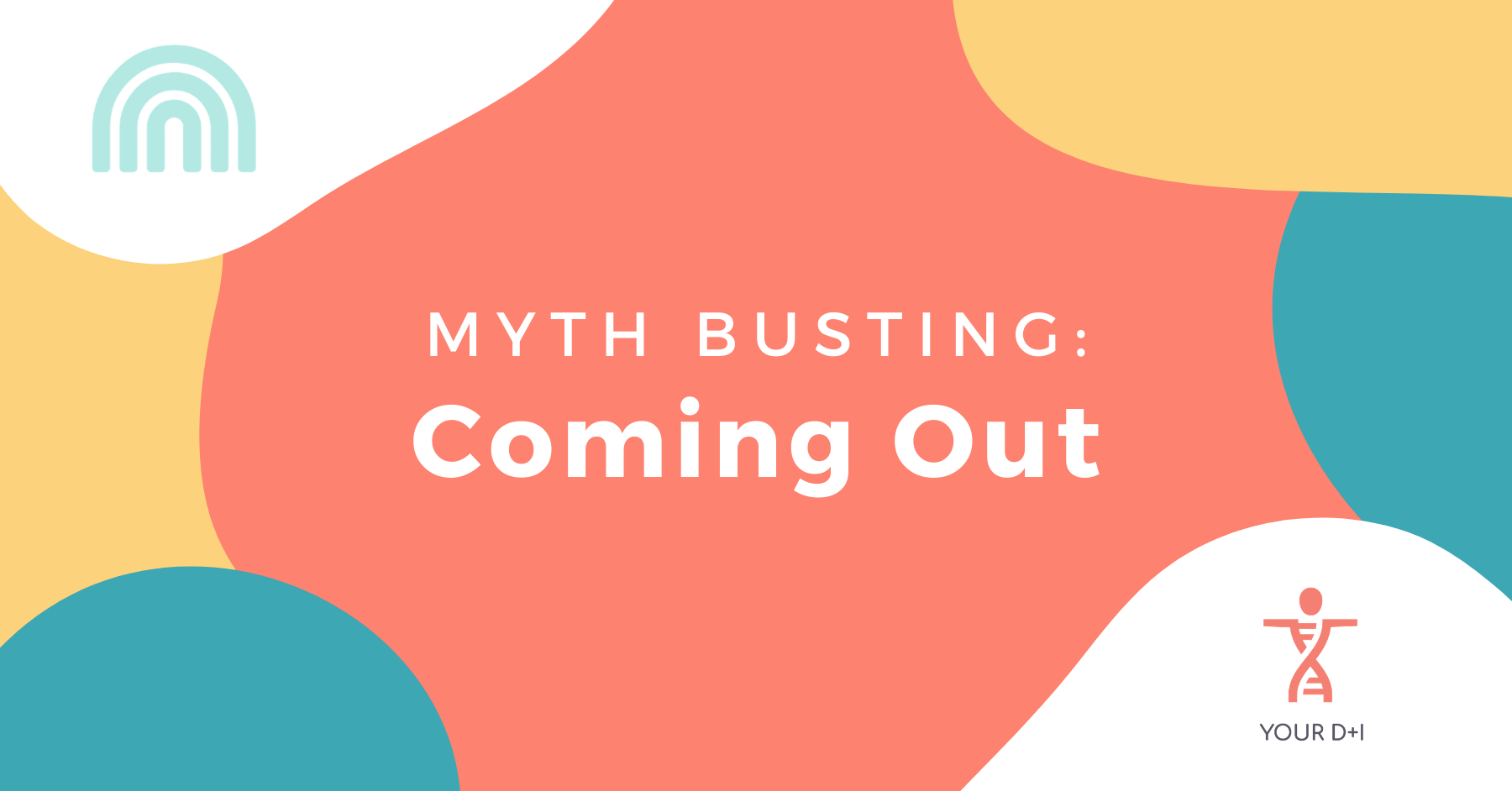Myth Busting: Coming Out
Happy National Coming Out Day! Today allows LGBT+ people to celebrate when they came out of the closet. Many people in the community who are ready to come out also use NCOD to take the leap. It is also an opportunity to raise awareness for the homophobia that exists within silence.
However, we’re taking the opportunity to continue our Myth Busting: LGBT+ blog series and talk about the myths surrounding coming out! To learn the truth behind more LGBT+ myths, check out our previous instalment, Myth Busting: Bisexuality.
Understanding LGBT+ experiences such as coming out is essential if you want to support your colleagues and staff from the community. So, to improve your diversity and inclusion efforts, let’s talk coming out!
What is coming out?
Coming out is short for the phrase, ‘coming out of the closet’. This is when you tell somebody about your LGBT+ identity, such as your sexuality or gender.
There are many reasons a person might come out, but it is usually so that they can live freely without hiding a part of themselves. For example, coming out might allow you to talk to your friends about who you are dating. Alternatively, it might let them know to use different pronouns and a new name if you are trans.
Now that we’ve covered what coming out is, let’s get to the myths!
‘You have to come out’
Probably the biggest myth of all is that everybody has to come out. Many of us in the LGBT+ community thought about coming out as soon as we realised we weren’t straight and/or cisgender. However, this can delay you coming to terms with your identity yourself.
There is no need to rush coming out or to even come out at all. While many LGBT+ people find coming out freeing, this is not the case for everyone. In fact, many people are in situations where coming out would not be safe. They may live with unsupportive family or even in a country where homosexuality is illegal.
Nobody should be pressured into coming out, and the myth that it is necessary can actually be very harmful.
‘You owe it to them to come out’
Even if your family and friends are supportive of the LGBT+ community, you do not owe it to them to come out. This is a common myth, and many LGBT+ people themselves believe that others have the right to know. At the end of the day, however, your identity is private information that only you have a right to.
Some parents might find it upsetting if their child has kept their sexuality a secret from them. However, this is usually because they don’t understand that they do not inherently have the right to this information.
When (or if) you come out should be all about being ready and nothing about others wanting to know.
‘You should come out on National Coming Out Day’
This may seem trivial, but a large number of people do come out on National Coming Out Day every year. If you are already planning on coming out, NCOD can help you get through your nerves.
However, if you aren’t totally sure you are ready to come out or that you will be safe if you do so, don’t do it. You should come out when it feels right and not just because it’s National Coming Out Day.
‘You can tell others that someone is LGBT+’
It might sometimes seem natural to mention your friend’s sexuality or gender identity, but you should always make sure they are okay with this beforehand. As we mentioned already, a person’s LGBT+ identity is theirs to share and no one else’s.
There are a number of reasons you shouldn’t share this information. For example, someone might only want to be out to a circle of close friends, or they may simply prefer telling people themselves. You also may not have judged the situation correctly and could put your friend in danger.
‘Coming out shows people’s true colours'
When you come out and don’t get the reaction you were hoping for, it is easy to feel defeated. In some cases, getting a negative reaction to coming out can mean having to cut ties with the other person. And this is sometimes for the best.
However, it is a myth that having a negative reaction means that this person will never change their mind. Many people find the news shocking but come to accept their loved one’s identity in time. While the journey to this point varies from person to person, it is certainly possible.
Celebrate but educate
Coming out is something to celebrate, but there are many myths surrounding this LGBT+ rite of passage. Clearing up these fallacies should give you a better understanding of the LGBT+ people you work with.
To learn more about LGBT+ identities, take a look at our LGBT+ workshop, The A-to-T of LGBT+!

